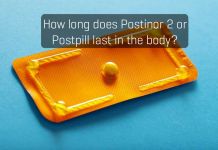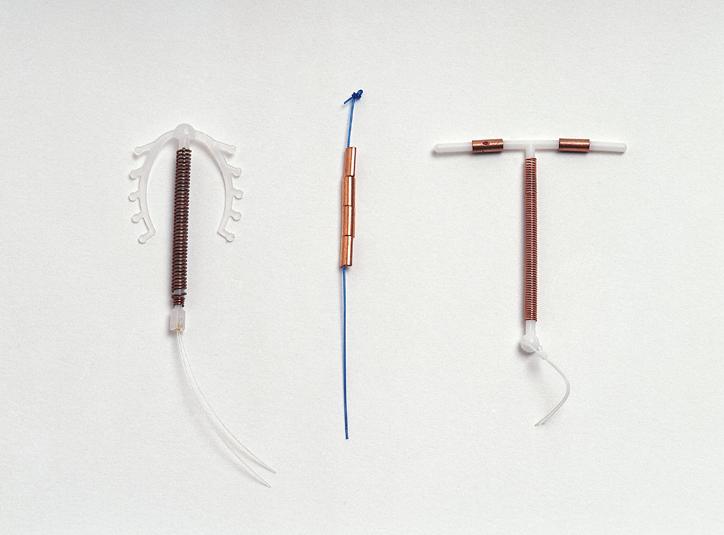An Intrauterine Contraceptive Device (IUCD) or IUD is a T-shaped device which is inserted into the uterus(womb) to prevent pregnancy. There are many types of IUCDs and they come in different shapes ans sizes.
The modern Intrauterine Devices (IUDs) have either copper or levonogestrel on their frame and are of varying shapes and sizes. The original IUCDs are obsolete as they were associated with heavy bleedingand severe dysmenorrhoea (e.g. Lippes loop and Saf-T coil) orr increased risk of pelvic inflammatory disease (Dalkron shield).
types of IUCD
The copper IUDs are very effective and licensed to last 3-10 years.e.g.
- Copper T 380A
- Nova T 380
- Mirena
- Gynefix
how does IUCD prevent pregnancy
The IUD works through the following mechanisms:
- locally induces inflammatory reaction in the endometrium preventing implantation.
- copper is a spermicide. It inhibits sperm mobility and activates sperm death (Copper IUCD)
- local endometrial suppression and thickening of the cervical mucus making it impervious to sperm (Mirena IUD).
how is the IUCD fitted?
Your doctor or nurse will perform some vaginal examination to determine your uterus and the correct size of IUD to to use. The IUCD is then inserted using an introducer and the procedure usually takes 5 to 10minutes.

Copper IUDs: they come in different shapes and sizes. Credit: Wikipedia
When should the IUD be fitted?
The IUD is best inserted towards the end of menstrual flow because it is at this time that you are unlikely to be pregnant, and the mouth of the womb, being softer and slightly open, makes insertion easier. An IUCD can also be inserted during the termination of pregnancy procedure.
Advantages of IUD
- convenient method of contraception with failure rate.It is 98% effective in preventing pregnancy.
- method not related to intercourse permitting spontaneity of sexual activity.
- rapid return of fertility after removal
- cost effective. It is cheap and affordable.
- ideal method for women who cannot remember to use pills
- reduces menorrhagia (heavy bleeding).
Risks/disavantages of IUCD
- slight risk pf pelvic infection in the first 20 days of insertion.
- may increase menstrual cramps (Mirena IUD).
- spotting and uterine cramps in first 3 months post insertion.
- some women dislike digital checks for the string.
- insertion may be painful
- risk of infection, perforation and expulsion (missing IUCD)
- IUD does not protect against STIs.
- increases the risk of ectopic pregnancy
do not use IUD if:
- you have congenital malformation of the uterus
- you have genital tract malignancy(cancer)
- you suspect you are pregnant
- you are HIV positive
- you have unexplained uterine bleeding
- previous history of PID
- previous history of ectopic pregnancy
- you have allergy to copper
READ ALSO: natural birth control methods
cost of iud in Nigeria
Perhaps, the most googled topic in Nigeria. Below is our search history on IUD:
- IUD price in Nigeria
- where to get IUD in Lagos
- Mirena IUD in Nigeria
- cost of copper IUD in Nigeria
Copper IUD/IUCD is very affordable because the price is subsized by the federal government to encourage contraception among women. Copper IUD costs between N500- N1,500 naira in government hospitals and N2,000- N3,000 in private hospitals.
The Mirena IUD is preloaded with levonogestrel. It is also known as the Mirena IUS (intrauterine system). Mirena IUD cost about N22,000 naira. It is not readily available in most hospitals in Nigeria but you can get Mirena in established pharmacies in Lagos, Abuja or Benin-city. Mirena IUD and other forms of IUCD are also available in online shops like Jumia, Konga, Ajebo, Amazon etc.
Read more on www.kkh.com.sg





















